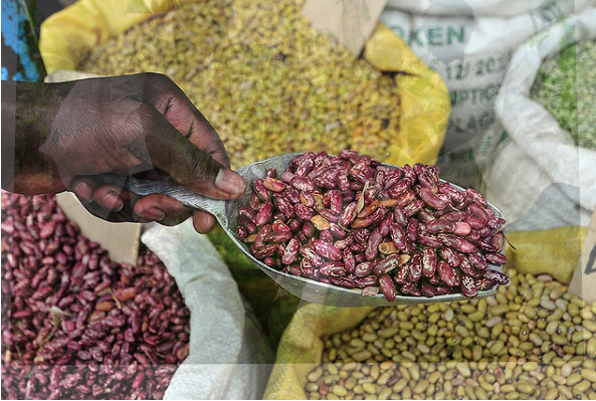Most farmers engaged in growing the bean legume crop have been doing it on small scale mainly for food consumption sold in markets within the country. Beans are rich in protein, the reason why in Uganda, it is mainly consumed in schools. However, many families especially those living in urban areas tend to avoid eating of beans because it requires a lot of energy to cook it. With the innovation of processing beans to make it half cooked ready for the market by agricultural scientists in East Africa, this could change. Dr Michael Ugen, the head of the bean programme at the National Crops Resources Research Institute (NaCRRI) in Namulonge, while explaining how the project activity will be conducted, described pre-cooked beans as pre-processed beans which are cooked under high temperature and pressure and packed in airtight weather proof aluminum sachets that can preserve the product for over six months. The product can also be packed in plastic containers or bags of varying sizes and be stored for more than a year.
What it takes?
The scientists will be involved in breeding the required bean varieties while various other stakeholders involved in the bean value chain will process the pre-cooked beans and package it ready for sell. This is mainly to ease energy consumption when cooking the product. This new project meant to improve food security, raise farmer incomes and conserve the environment in terms of saving energy which will be implemented in Uganda and Kenya is a public- private partnership. The three projects worth $2.5m (about Shs 6B) will bring together researchers, farmers, traders and manufacturers to develop high quality locally processed pre-cooked bean products for consumers in both countries.
Dr Ugen explains that the project will be spearheaded by scientists from National Agricultural Research Organisation (NARO) working at the bean programme in Uganda and Kenya Agricultural and Livestock Research Organization (KALRO) in partnership with the International Centre for Tropical Agriculture (CIAT). The project is funded by Cultivate Africa’s Future Fund (CultiAf) set up by Canada’s International Development Research Centre (IDRC) and the Australian Centre for International Agricultural Research (ACIAR). Speaking at the project launch, Dr James Ogwang, the Director NaCRRI said legumes, especially common beans, are considered important in Uganda particularly in the provision of protein food nutrient.
Why pre-cooked beans?
He noted that pre-cooked bean products to be processed in the two countries will improve nutrition content, incomes and conserve the environment in terms of saving on biomas energy as well as boost farmer production of beans since there will be ready market provided by processing industries. By developing pre-cooked bean products, scientists are trying options to support farmers to plug out these new markets that have a strong potential to deliver higher returns for their land, labour and capital.
Preservation
Beans can be kept in dry form which are easily accessed by majority of the population or frozen for those with available source of power. The beans for precooking will come from the available NARO varieties (NABE 1-29C) and the nutrient dense bean varieties depending on the market demand and consumption needs. Since there are bean varieties providing nutritional contributions to human nutrition such as protein, calories, micronutrients such as iron and zinc, folic acids, fibre and complex carbohydrates, high cost of energy for food preparation is making households opt for processed bean products that are easy to prepare as opposed to dry beans that takes longer time to cook.
NARO through NaCRRI is the main implementing agent in collaboration with KARLO of Kenya. Private sector involved in processing is very crucial with seed companies such as CEDO and Smart Logistics Limited in Kenya as part of the project. The NaCRRI team will provide extensive screening and testing of the numerous bean varieties and identify those suitable for precooking as well as inform farmers which varieties to grow. The statistical figures of the bean value by UBOS indicate increasing production of beans up to 929,000 MT in the 2008/2009 season.

